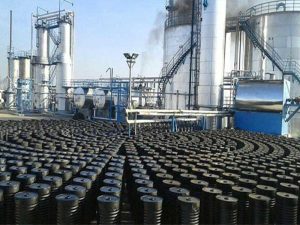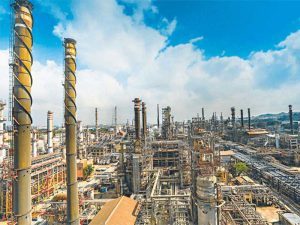Oil and gas are pivotal to global economic structures, shaping industries, influencing geopolitics, and driving national economies. Their roles extend far beyond their status as energy resources. The petroleum industry not only fuels our daily lives, but it also has far-reaching economic impacts, from job creation to national revenues. This article examines the economic importance of oil and gas and how their prices affect everything from local markets to global trade.
Petroleum’s Role in Driving National Economies
Oil and gas are fundamental pillars of modern economies, with numerous countries relying on them as their primary source of revenue. For many developing and developed nations alike, petroleum is the backbone of their economic growth. For instance, countries like Saudi Arabia, Venezuela, and Kuwait depend heavily on oil exports as their main source of income. These nations’ economies are shaped by oil revenues, which fund infrastructure projects, public services, and welfare programs.
In addition, the energy sector, including oil and gas, generates vast employment opportunities, directly and indirectly. Oil extraction, transportation, refining, and distribution are labor-intensive sectors that provide millions of jobs worldwide. The labor force within the oil industry is diverse, with positions ranging from engineers and geologists to administrative and logistical staff.
Beyond direct employment, the revenue generated by the petroleum industry facilitates further job creation in sectors such as manufacturing, construction, and technology. For instance, when countries export petroleum, they often trade it for goods and services, stimulating trade relations with other nations and generating wealth across industries.
The Connection Between Petroleum Prices and Global Markets
Oil prices are incredibly influential, not only to the energy market but also to almost every other sector. Global markets respond rapidly to changes in the cost of oil, as fluctuations can impact inflation rates, production costs, transportation, and consumer prices. A rise in oil prices typically results in higher transportation costs, which trickle down to other goods and services.
Petroleum is one of the most widely traded commodities globally, and its price is primarily determined by market forces of supply and demand. Global events, such as geopolitical tensions, technological advancements, or natural disasters, can cause disruptions in oil supply, affecting oil prices. For example, conflicts in the Middle East or disruptions in the supply chain, such as during the COVID-19 pandemic, can cause oil prices to spike.
Higher oil prices have a domino effect on industries across the globe. Airlines, for example, face higher operational costs as jet fuel becomes more expensive, ultimately raising ticket prices for consumers. Similarly, industries that rely on petroleum products for manufacturing—such as plastics, chemicals, and transportation—face increased production costs that could influence the final price of consumer goods.
How Fluctuating Oil Prices Affect Economic Stability
Fluctuating oil prices are often a source of instability for both developed and developing nations. A sudden spike in oil prices can lead to inflationary pressures, particularly in countries heavily reliant on oil imports. For instance, the U.S., one of the world’s largest oil consumers, can experience increases in gas prices, leading to higher household expenses and diminished purchasing power. Similarly, in emerging economies, where energy prices account for a significant portion of the total expenditure, rapid price increases can destabilize entire economies.
On the other hand, countries that are net oil exporters may benefit from high oil prices. For example, Russia, Iran, and Nigeria see a direct positive impact on their revenues from increased oil prices. However, this economic boom can be short-lived if oil prices fall again or if the country is too dependent on this volatile sector. A heavy reliance on petroleum can create an economic “boom-bust” cycle, with nations experiencing prosperity during high prices and severe recessions when prices drop.
Long-Term Economic Impacts of Petroleum Dependence
Despite the undeniable economic importance of petroleum, a dependence on oil presents long-term challenges for countries. As the world moves toward cleaner energy sources and more sustainable alternatives, the heavy reliance on oil can hinder long-term economic stability. The volatility of oil prices, coupled with the global push for environmental sustainability, suggests that nations will need to diversify their energy portfolios in the coming decades.
The effects of oil dependency are not just economic; they extend to political and environmental spheres. Nations dependent on petroleum revenues are often subject to price fluctuations and geopolitical risks that can result in economic instability. Furthermore, these countries may face pressure from the international community to reduce their carbon emissions and invest in renewable energy sources.
For countries rich in oil, such as Saudi Arabia and Russia, there is the added risk of becoming too dependent on a single source of income. The diversification of their economies becomes essential, especially as alternative energy sources like solar, wind, and hydropower gain prominence. Governments are increasingly looking at the future of the oil industry, recognizing that transitioning to a more sustainable economy will be crucial for long-term growth.
Impacts of the Oil and Natural Gas Industry on the US Economy
In the United States, the oil and gas industry plays a significant role in both economic output and employment. As one of the world’s largest oil producers, the U.S. has capitalized on its vast shale reserves, becoming a key player in the global oil market. The petroleum sector contributes substantially to U.S. GDP, with the extraction, production, and refinement of oil and gas supporting numerous industries.
Additionally, the oil industry impacts the U.S. government’s revenue, as taxes and royalties from oil production contribute billions of dollars annually. These funds are used to finance a range of federal programs, from infrastructure projects to military operations.
The oil and gas sector also has a significant influence on U.S. geopolitics. The country’s energy independence has allowed it to reduce reliance on foreign oil and exert greater influence over global energy markets. By strategically leveraging its position as a major energy producer, the U.S. has strengthened its economic and political influence in key regions of the world.
In conclusion, petroleum and gas remain crucial economic drivers that power industries, influence global trade, and stabilize national economies. While the sector provides substantial benefits, countries must remain mindful of the long-term challenges associated with oil dependency. The volatile nature of oil prices, the global shift towards sustainability, and the increasing focus on clean energy present both opportunities and risks that will shape the economic future of petroleum-rich nations.






